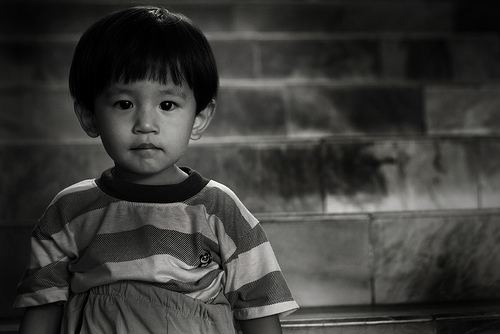 There are children who wait for families through international adoption in Bulgaria, Ukraine, Nicaragua, Mexico and many other countries around the world through no fault of their own. Due to myths, assumptions, stereotypes, and fears they linger in orphanages around the world. For some, the reason they struggle to find a forever family, is that there is a history of mental illness or mental retardation in their birth family.
There are children who wait for families through international adoption in Bulgaria, Ukraine, Nicaragua, Mexico and many other countries around the world through no fault of their own. Due to myths, assumptions, stereotypes, and fears they linger in orphanages around the world. For some, the reason they struggle to find a forever family, is that there is a history of mental illness or mental retardation in their birth family.
How does this family history impact the lives of these children? Having a family background of mental health issues does not automatically sentence a child to a life of mental illness. Only about five percent of cases of mental retardation are caused by genetics. Many issues categorized as mental retardation may have more to do with external factors or circumstances at birth rather than genes. While you may see some generational problems in families, the disorder itself is not typically directly inherited, but can increase the chance of vulnerability.
Traits such as hair color, eye color, and some aspects of our temperament or personality are inherited, but most disease is not passed on directly. Only in the cases of diseases associated with genetic defects are they likely to be inherited by children. In our society, there is a social stigma against those who may have a history of mental illness or retardation in their family. Galen V. Bodenhausen, a professor of marketing at the Kellogg School of Management says, “Mental illness is an interesting case. Stigma is extremely commonplace in our culture. While blatant kinds of racism and sexism have declined in recent times, stigma against mental illness seems to be increasing. It is an important social problem with an impact on individuals with mental illness and a cost to society.”
Our culture has stereotypical views about mental illness and how it affects people. Many believe that those with any link to a mental illness are potentially violent or dangerous.The view is intensified by the media, who often portray those with mental illness as dangerous, evil, or not capable of living normal, fulfilled lives.
So do we choose to believe stereotypes, stigmas, or myths? Or do we open our hearts and homes up to those who truly are in need?
Photo Credit: Quinn Mattingly
For more information about MLJ Adoptions’ international adoption programs, please click here.
